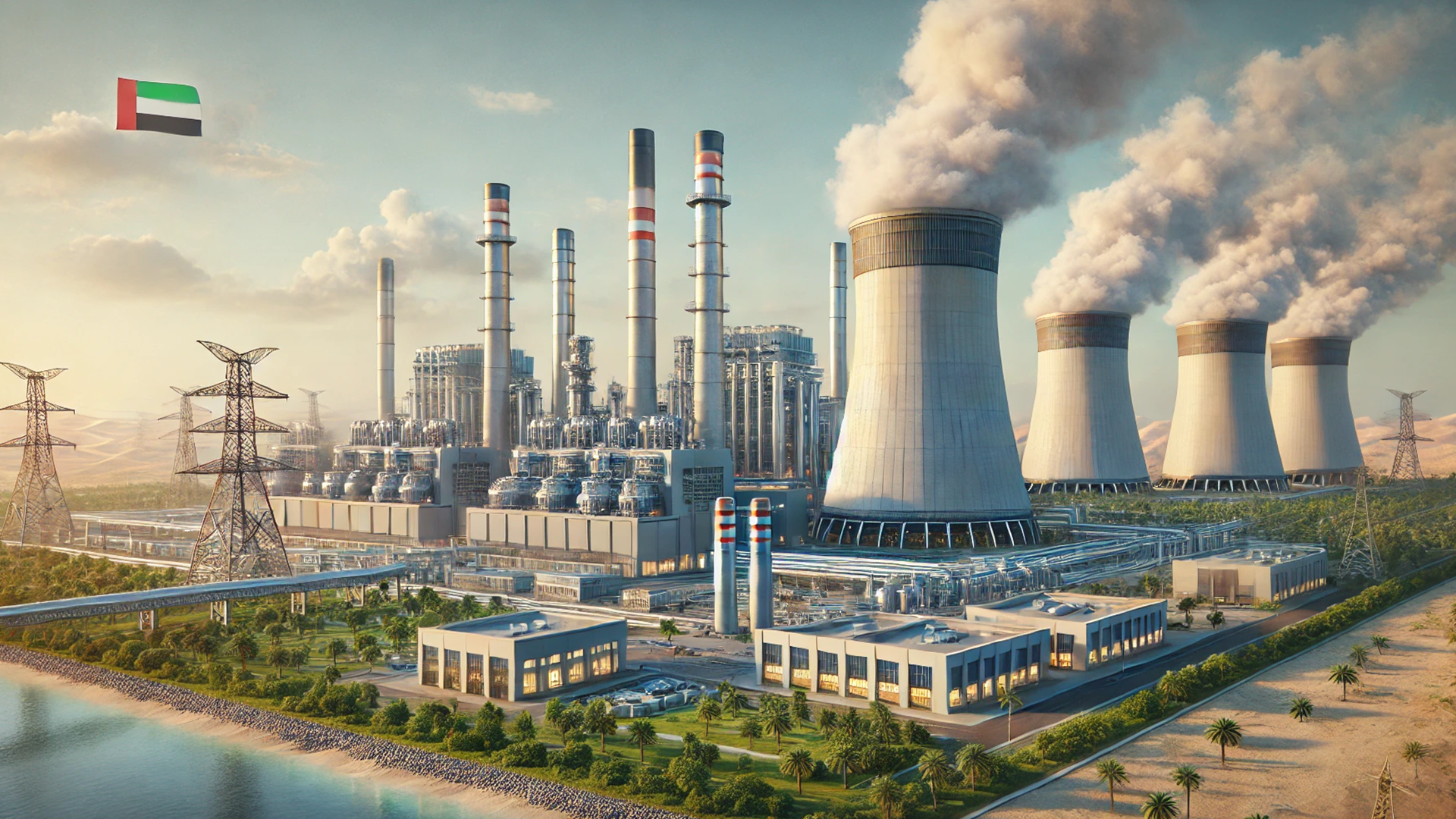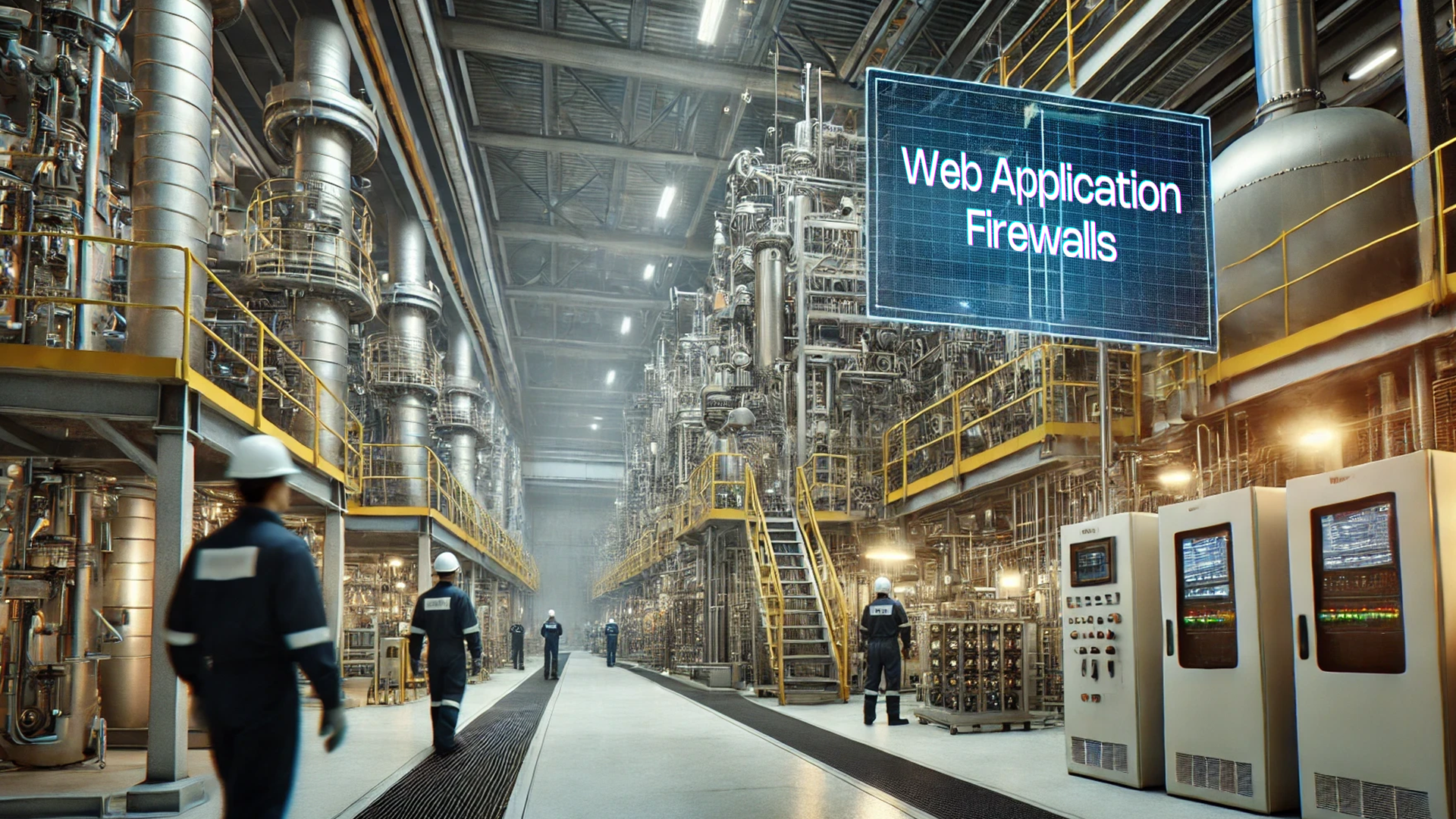
Thank you
Our team of industry domain experts combined with our guaranteed SLAs, our world class technology .


Get Immediate Help
The energy sector in the UAE is an integral part of the nation's economy, powering industries, infrastructure, and millions of households. As the sector undergoes rapid digital transformation, integrating advanced technology into its operations, it also opens itself up to new cyber threats. From cyberattacks targeting oil and gas pipelines to data breaches in energy management systems, the stakes are high. This is where Web Application Firewalls (WAF) come into play, offering robust protection to safeguard this critical infrastructure.

The UAE’s energy sector is no longer just about traditional oil and gas; it has evolved into a digitally-driven industry with sophisticated networks, interconnected systems, and the rise of renewable energy technologies. While this transformation brings operational efficiency and innovation, it also makes energy companies prime targets for cybercriminals. The energy infrastructure security landscape now requires enhanced protective measures, particularly around web applications, which are at the core of modern energy operations.
The consequences of cyberattacks in the energy sector can be devastating, potentially leading to service disruptions, financial losses, and even national security risks. With threats like data breaches, ransomware, and distributed denial-of-service (DDoS) attacks looming large, UAE-based energy companies need to prioritise comprehensive security solutions. A key component of this security strategy is the deployment of web application firewalls.

1. Protection Against Common Web-Based Threats
Web applications are a frequent target of cyberattacks due to their external accessibility. Web application firewalls are designed to provide a shield against a wide range of web-based threats such as SQL injection, cross-site scripting (XSS), and malicious bots. In the energy sector, these threats can expose sensitive data, disrupt operations, or even compromise critical infrastructure.
By implementing a web application firewall (WAF), energy companies in the UAE can actively monitor and filter incoming traffic to web applications, ensuring that malicious requests are blocked before they cause harm.
2. Preventing Data Breaches
One of the most significant risks for energy companies is the potential for data breaches. Whether it's proprietary information, sensitive operational data, or customer records, the energy sector holds a vast amount of critical data that can be valuable to cybercriminals.
A WAF helps prevent data breaches in the energy sector by scanning for malicious activities aimed at exploiting vulnerabilities in web applications. Whether it's through a phishing attack or a zero-day vulnerability, a well-configured WAF can significantly reduce the chances of a breach.
3. Securing Oil and Gas Applications
Oil and gas companies are particularly vulnerable to cyberattacks due to the complexity of their operational technology (OT) systems. As these companies adopt web-based applications for better control and monitoring, they become more susceptible to attacks targeting these applications.
A web application firewall for oil and gas provides an additional layer of protection by scrutinising HTTP/S traffic to and from these applications. This ensures that only legitimate requests are processed, safeguarding sensitive control systems from being compromised by hackers.
4. Ensuring Compliance with Data Protection Regulations
With growing regulatory pressure on industries to ensure the protection of digital data, energy companies in the UAE must stay compliant with global and local cybersecurity regulations. A WAF helps companies meet these requirements by providing data protection strategies that ensure the security of web applications and sensitive information.
By using a WAF solution, energy companies can also maintain audit trails, which are essential for compliance reporting and incident investigation.
5. Mitigating the Risk of DDoS Attacks
Distributed Denial-of-Service (DDoS) attacks can cripple web applications, leading to downtime and a loss of productivity, especially in a sector as critical as energy. The cyberattack prevention capabilities of a WAF can mitigate these risks by identifying and filtering out malicious traffic before it overwhelms the system.
For energy companies in the UAE, where operational uptime is crucial, a web application firewall ensures that mission-critical applications remain operational even in the face of DDoS threats.

1. Continuous Security Monitoring
A WAF provides continuous monitoring of web traffic, allowing for real-time detection of security threats. This proactive approach ensures that potential vulnerabilities are identified and neutralised before they can cause any significant damage. The energy sector's reliance on online platforms for monitoring and data analysis makes web security essential for daily operations.
2. Cost-Effective Security Solution
Investing in a WAF is a cost-effective way for energy companies to enhance their cybersecurity posture. By preventing data breaches, downtime, and the loss of sensitive information, WAF solutions reduce the overall cost of responding to incidents. This is particularly important for small and medium-sized energy companies in the UAE that may not have extensive cybersecurity budgets.
3. Seamless Integration with Existing Security Infrastructure
Modern WAF solutions can be easily integrated into existing security infrastructures. Whether a company uses cloud-based security systems, hybrid setups, or traditional on-premise systems, a WAF can seamlessly complement the current framework.
This multi-layered security approach provides energy companies with the resilience needed to defend against increasingly sophisticated cyberattacks.
4. Cloud-Based Protection for Energy Companies
As the energy sector embraces cloud computing for operational efficiency, securing cloud-based applications becomes even more critical. Cloud-based WAF services offer scalable protection that adapts to the needs of energy companies as they expand their digital footprint.
Cloud WAFs offer flexibility, enabling energy companies to protect their web applications across multiple locations and ensuring that they remain compliant with data protection regulations in every region they operate.

When implementing a web application firewall in the energy sector, companies should keep the following factors in mind:
- Compatibility: Ensure that the WAF integrates well with existing security infrastructure without disrupting normal operations.
- Customisation: Choose a WAF solution that can be tailored to the specific security needs of energy operations, from protecting industrial control systems to safeguarding sensitive data.
- Scalability: As the energy sector continues to expand and adopt new technologies, the WAF should be scalable to accommodate future growth and increased web traffic.
- Ongoing Support: Implementing a WAF is not a one-time solution; it requires ongoing monitoring, updates, and support to stay ahead of evolving cyber threats.
At Microminder CS, we understand the unique security challenges faced by the energy sector in the UAE. Our web application firewall solutions are designed to provide robust protection against the full spectrum of web-based threats, ensuring that energy companies can focus on their core operations without the constant worry of cyberattacks.
For organisations in the UAE energy sector facing cybersecurity challenges, the following Microminder CS services would be especially helpful:
1. Web Application Firewall (WAF) Services
Web Application Firewall services are crucial in protecting the energy sector from web-based attacks such as SQL injection, cross-site scripting (XSS), and DDoS attacks. WAFs monitor, filter, and block malicious traffic attempting to access web applications critical to energy operations. By deploying WAF services, energy companies can prevent data breaches, safeguard their web applications, and ensure uninterrupted operations.
2. Cloud Security Solutions
Many energy companies are transitioning to cloud-based platforms for their operations. Cloud Security Solutions provided by Microminder CS ensure that the cloud environment is secure against cyber threats. With the integration of WAF services into cloud security, companies can enhance protection for their web-based applications, especially as they manage sensitive data and industrial operations on the cloud.
3. Threat Intelligence and Monitoring
Threat Intelligence Services provide continuous monitoring and real-time alerts to detect potential threats. This service is particularly important for energy companies, which require round-the-clock monitoring of web applications to prevent data breaches and cyberattacks. With threat intelligence, Microminder CS helps organisations stay ahead of emerging threats and vulnerabilities.
4. Incident Response and Managed Security Services
In the event of a cybersecurity incident, having a rapid and effective incident response plan is critical. Microminder CS’s Incident Response services offer immediate action to contain, investigate, and mitigate the impact of cyberattacks. Managed security services also provide ongoing support and management to ensure that web application firewalls and other cybersecurity tools are maintained, updated, and optimised.
By leveraging these services, energy companies in the UAE can build a multi-layered security infrastructure that defends against both existing and emerging cyber threats, ensuring business continuity and operational resilience.
In conclusion, the UAE’s energy sector stands at the crossroads of innovation and risk. With increasing reliance on web-based applications and the rise of cyber threats, there is a critical need for web application firewalls to protect sensitive infrastructure. Whether it's preventing data breaches, securing oil and gas applications, or ensuring compliance, a WAF is an essential tool in the energy sector’s cybersecurity arsenal. By partnering with the right security provider, energy companies can achieve robust protection and operational resilience in an increasingly digital world.
By integrating web application firewalls with your energy company’s security framework, you can ensure that your critical infrastructure is protected from cyber threats, enabling your business to continue its digital transformation journey securely.
Contact Microminder CS today to learn more about how we can help you strengthen your cybersecurity defences with our expert WAF services.
Don’t Let Cyber Attacks Ruin Your Business
Call
UK: +44 (0)20 3336 7200
KSA: +966 1351 81844
UAE: +971 454 01252
Contents
To keep up with innovation in IT & OT security, subscribe to our newsletter
Recent Posts
Penetration Testing | 10/11/2025
Cloud Security | 07/11/2025
Cybersecurity | 06/11/2025
Why is WAF important for the energy sector in the UAE?
The energy sector is a critical infrastructure that is increasingly targeted by cyberattacks. A WAF helps protect web-based applications, ensuring the security of sensitive data, preventing disruptions, and safeguarding operational continuity.How does a WAF protect against cyberattacks?
A WAF protects by analysing incoming web traffic and identifying malicious requests. It blocks these harmful actions before they can exploit web application vulnerabilities. This includes protection against DDoS attacks, malware, and data theft.Can a WAF protect against internal threats?
While WAFs are primarily designed to protect against external threats, they can also help in detecting unusual patterns of internal traffic or potential insider threats. However, a comprehensive security solution that includes internal monitoring tools is advisable.What are the benefits of integrating WAF into an energy company’s infrastructure?
Integrating a WAF provides real-time protection for web applications, ensures compliance with security regulations, protects customer and operational data, and helps in the early detection of cyberattacks, ultimately reducing downtime and safeguarding against financial losses.